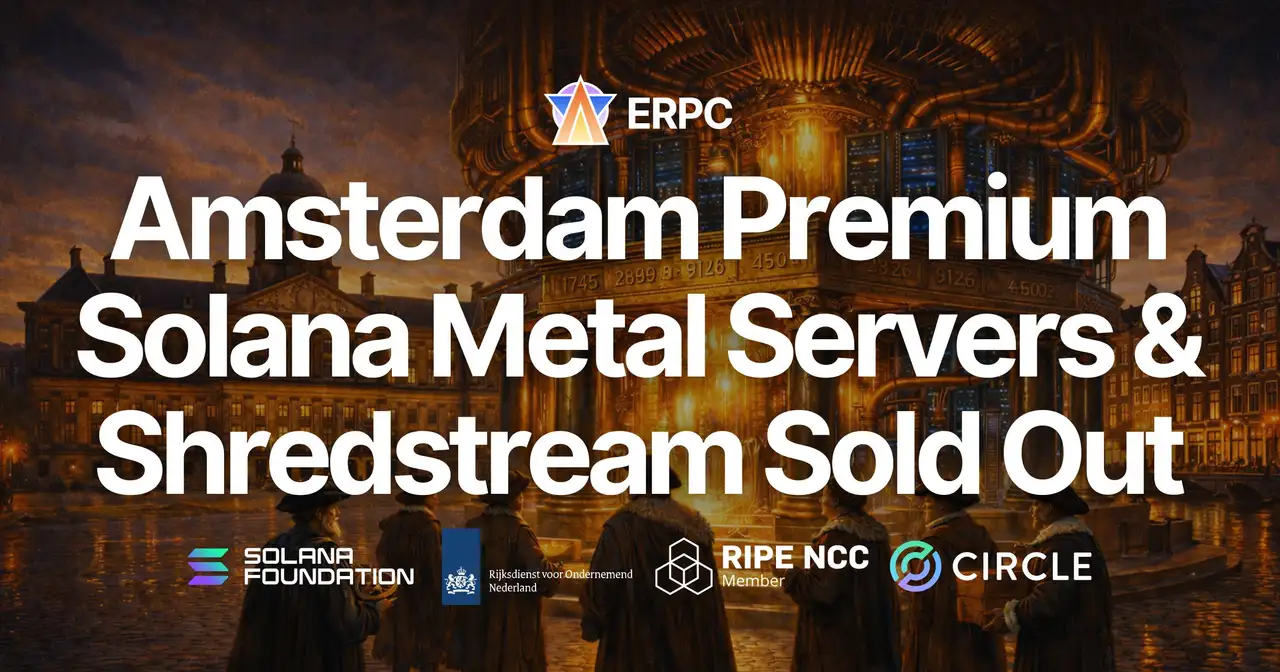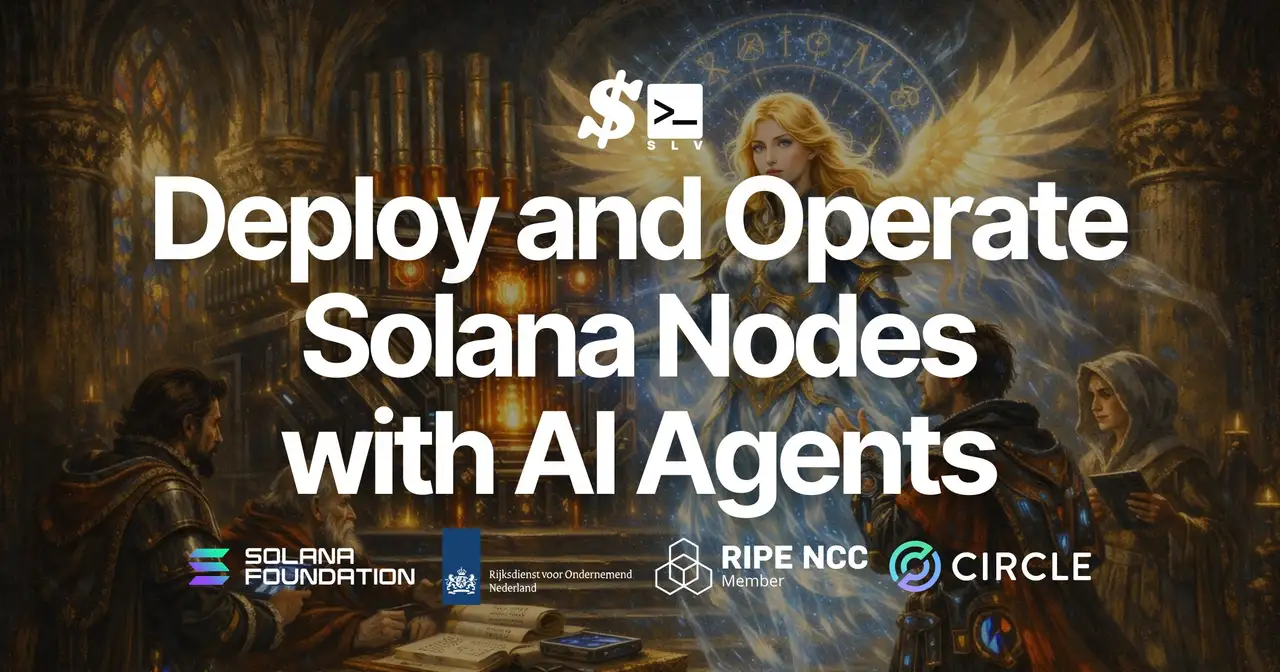ERPC Adds Support for Solana Devnet and Testnet, Enabling Seamless Testing Across Identical Environments from Development to Production
ERPC Adds Support for Solana Devnet and Testnet, Enabling Seamless Testing Across Identical Environments from Development to Production
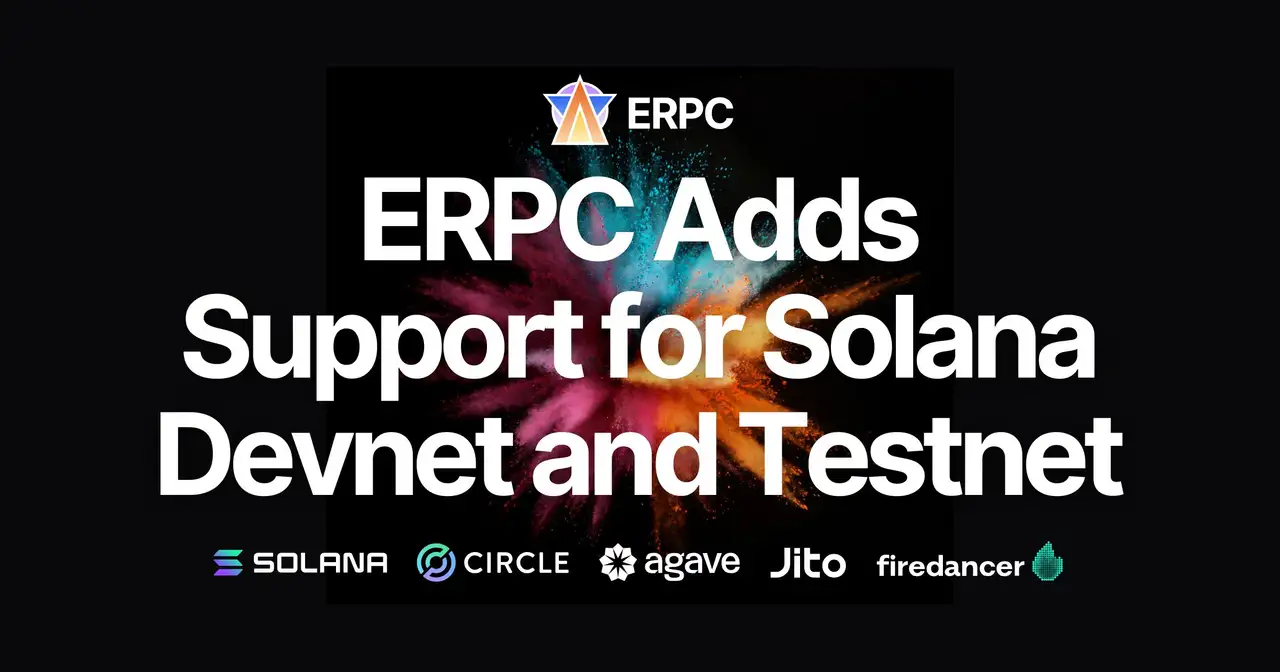
ELSOUL LABO B.V. (Headquarters: Amsterdam, the Netherlands; CEO: Fumitake Kawasaki) and Validators DAO, the operators of ERPC, have officially completed support for Solana’s Devnet and Testnet.
With this update, existing users can now use the same API key to access ERPC’s high-performance infrastructure not only on mainnet, but also within development and testing environments.
On Solana’s Devnet and Testnet, users can safely test and verify applications using the same structure as Mainnet without spending real SOL tokens.
Testing and validation that previously had to be done on Mainnet can now be performed smoothly using the exact same connection setup.
Background
Devnet is a public cluster where applications and programs can be tested without using real SOL.
It is used not only for new implementations but also for verifying behavior during feature updates, allowing developers to perform safe and repeated testing with test tokens.
It is used not only for new implementations but also for verifying behavior during feature updates, allowing developers to perform safe and repeated testing with test tokens.
Testnet is operated to verify the behavior of upcoming releases and new features.
It allows developers to understand upcoming versions and network specifications in advance and prepare for production deployment.
It allows developers to understand upcoming versions and network specifications in advance and prepare for production deployment.
ERPC now officially supports these environments, integrating Mainnet Beta, Devnet, and Testnet under a single API key.
By simply switching configurations, developers can handle development, testing, and production within one consistent environment, keeping pace with the latest Solana release cycles.
By simply switching configurations, developers can handle development, testing, and production within one consistent environment, keeping pace with the latest Solana release cycles.
How to Use
Current ERPC users can continue using the same API key from the dashboard and simply change the target cluster to Devnet or Testnet.
Switching between Mainnet and other clusters can be done by adjusting the URL and options, allowing validation and production to operate under the exact same code and environment.
Using Testnet also allows validation of monitoring and alert systems for validator operations.
It is ideal for confirming whether monitoring and notification mechanisms work correctly before production deployment.
It is ideal for confirming whether monitoring and notification mechanisms work correctly before production deployment.
In the near future, SLV will leverage this ERPC Testnet infrastructure to make Testnet validator monitoring and alerting even easier.
Pricing and Bundle Plan
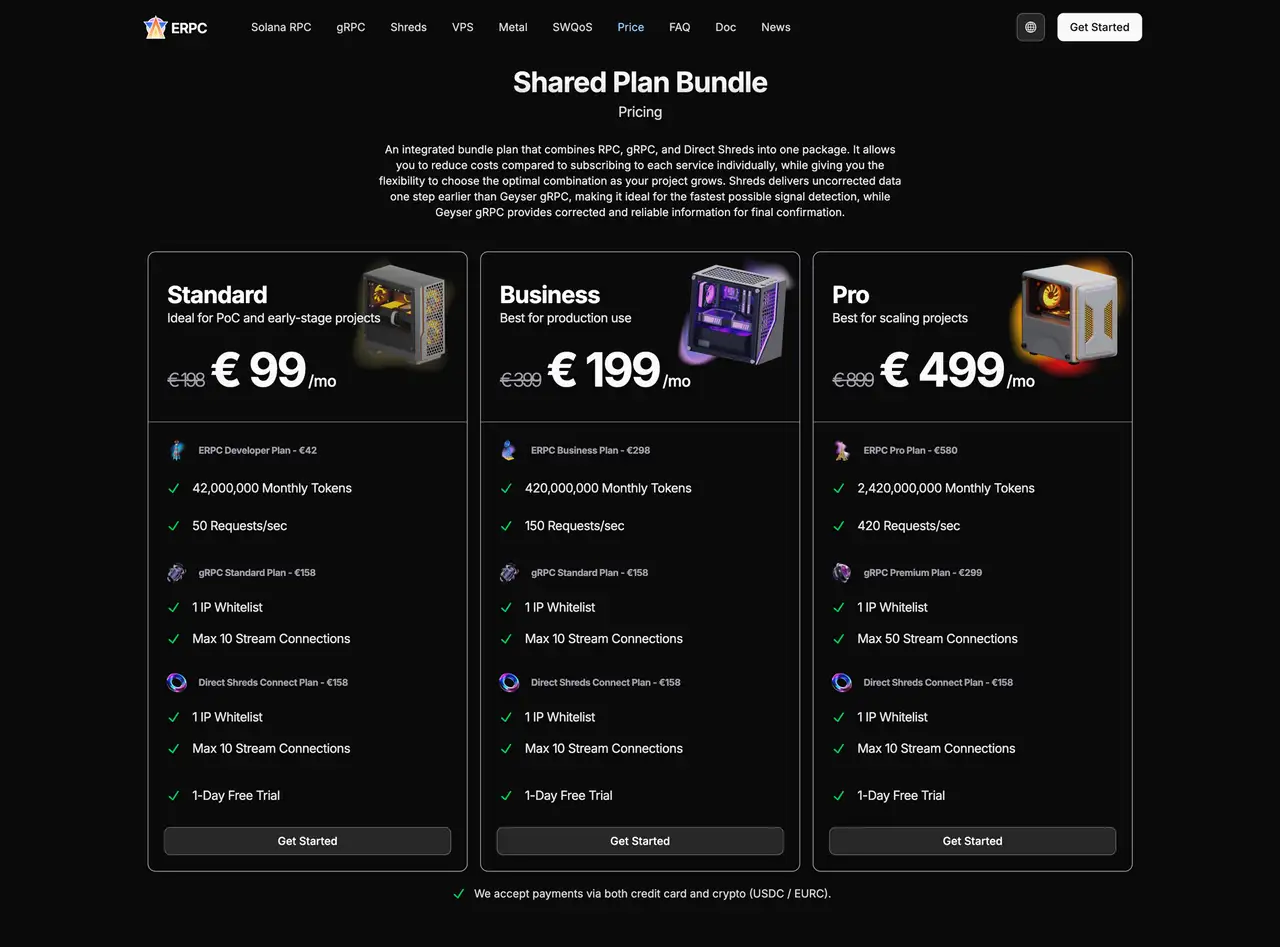
This update introduces no additional cost—Devnet and Testnet access are included in the existing shared endpoint plans.
The overall pricing structure remains unchanged.
The overall pricing structure remains unchanged.
The cost-effective and widely supported Bundle Plan provides unified access to Solana RPC, Geyser gRPC, and Shredstream.
Shredstream allows you to receive raw data from the network the moment it is generated, while Geyser gRPC provides precise confirmation based on finalized block data.
By combining both, you can achieve an ideal balance between the fastest detection and the most accurate validation.
By combining both, you can achieve an ideal balance between the fastest detection and the most accurate validation.
Commitment to Global Quality
ERPC operates Solana networks within major data centers around the world, adopting an architecture that connects with customers’ bare-metal servers and VPSs at zero distance, constantly pursuing stable communication quality.
By avoiding external internet routes and directly connecting within the same network as major validators and the Jito Block Engine, ERPC delivers mainnet-grade responsiveness even in development environments.
The same principle applies to Devnet and Testnet.
By maintaining stable network connections from the development stage, developers can perform builds, debugging, and testing more comfortably, resulting in faster iteration cycles and improved productivity for entire teams.
By maintaining stable network connections from the development stage, developers can perform builds, debugging, and testing more comfortably, resulting in faster iteration cycles and improved productivity for entire teams.
Premium Ryzen VPS
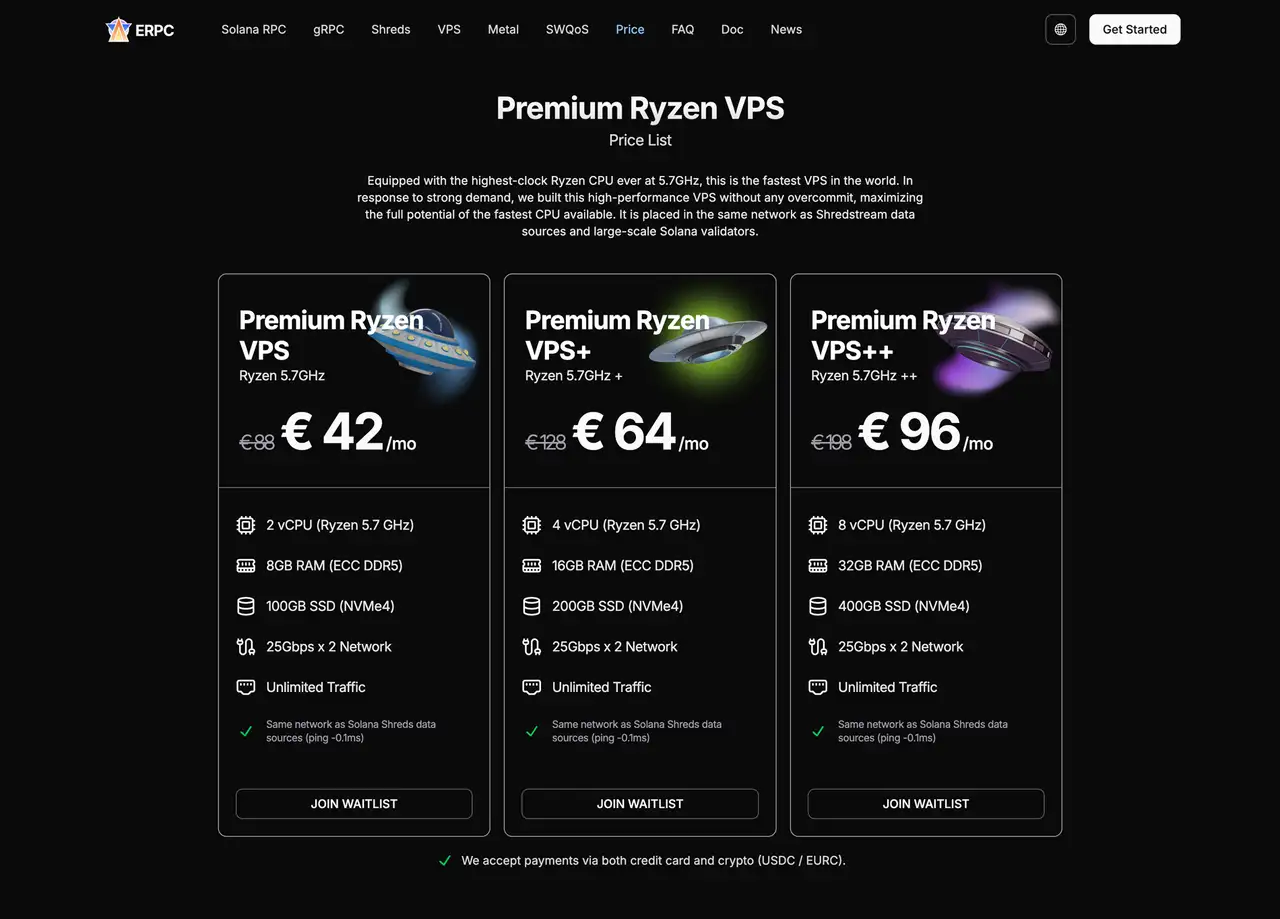
Premium Ryzen VPS, operating within the same network as ERPC, is also recommended for development and testing environments. It features premium specifications that can be directly promoted to production use.
Equipped with the world’s fastest 5.7GHz high-clock CPU, ECC DDR5 memory, and NVMe4 storage, and designed with zero overcommitment, it delivers near bare-metal performance even in a virtualized environment.
In testing environments, a few milliseconds of deviation are acceptable, but significant performance drops can hinder validation.
Premium VPS optimizes this balance, maintaining high-speed development performance while keeping costs low.
Premium VPS optimizes this balance, maintaining high-speed development performance while keeping costs low.
Future Development
With support for Devnet and Testnet, ERPC now provides a fully unified platform covering every stage from development to production.
We will continue improving the service based on user feedback, building a more convenient and reliable Solana development environment.
Through ongoing research and development, we aim to create an environment where development teams worldwide can build Solana applications with ideal responsiveness and stability.
Issues ERPC and Validators DAO Solve
- Transaction failures and latency fluctuations common in typical RPC environments
- Performance throttling imposed by many infrastructure providers
- Significant impact of network distance on communication quality
- Difficulty for small projects to access high-quality infrastructure
During the development of Epics DAO, an open-source Solana NFT card game project, we faced the same challenge: the lack of an easily accessible, high-quality, and high-speed Solana development environment.
To solve this, we built our own platform, which later became the foundation for ERPC and SLV.
To solve this, we built our own platform, which later became the foundation for ERPC and SLV.
Financial applications are particularly mission-critical—latency and errors directly affect user experience.
Because of Solana’s distributed validator structure and the unique characteristics of Web3 systems, understanding the full performance picture can be difficult, and many projects have long struggled with instability and delay.
Because of Solana’s distributed validator structure and the unique characteristics of Web3 systems, understanding the full performance picture can be difficult, and many projects have long struggled with instability and delay.
We are committed to providing the high-performance infrastructure developers truly need, contributing to both the developer and user experience across the Solana ecosystem.
ERPC and SLV are both integral parts of this commitment.
ERPC and SLV are both integral parts of this commitment.
- ERPC Official Site: https://erpc.global/en
- SLV Official Site: https://slv.dev/en
- Epics DAO Official Site: https://epics.dev/en
- Validators DAO Official Discord: https://discord.gg/C7ZQSrCkYR



